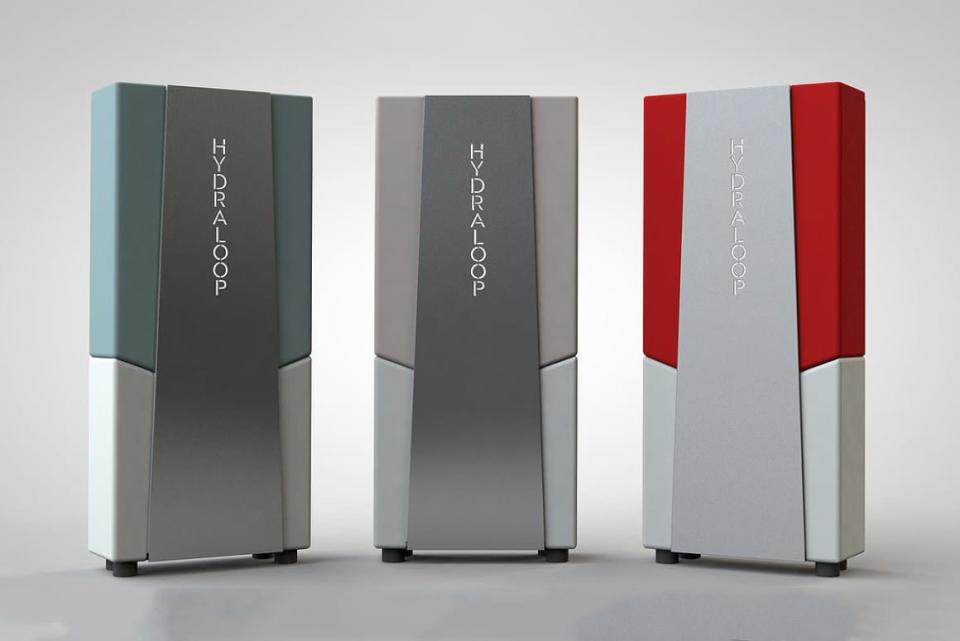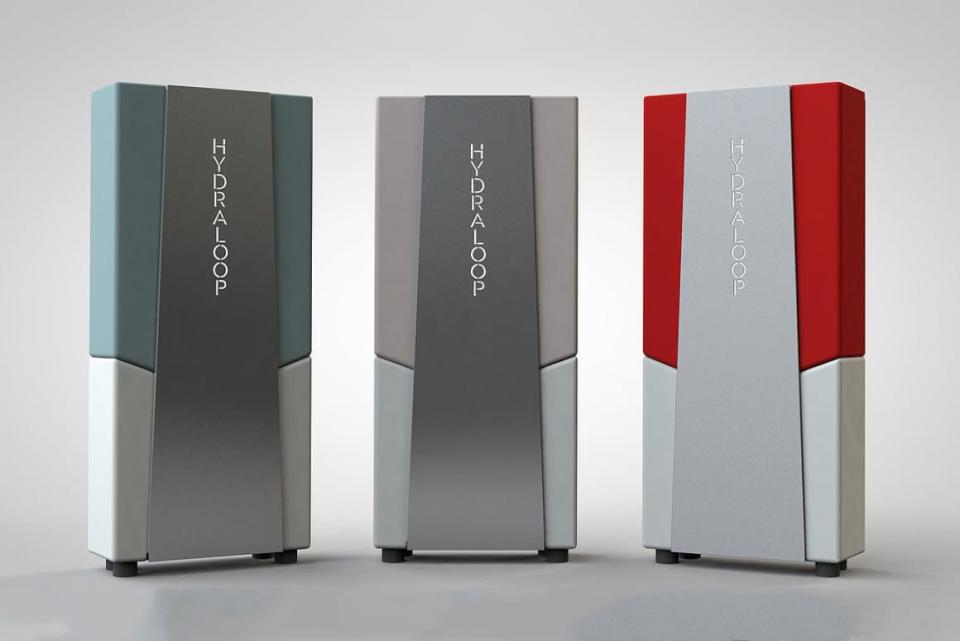This in-home water recycler is meant to help the planet, and your wallet
Hydraloops are live in Europe and Africa, and they're coming to the US.
With concerns over water scarcity on the rise, companies are increasingly looking to give people ways to reduce their water consumption. For Hydraloop founder and CEO Arthur Valkieser, the answer was clear: Build a device that gives homeowners and building developers a way to sterilize and reuse their water.
Hydraloop's namesake product is about the size of a refrigerator (except much flatter) and hooks into your home's existing water system. Once installed, it'll take in outgoing waste water and process it in multiple ways: Think sedimentation, flotation, dissolved air flotation and foam fractionation. That treated water is then processed by an aerobic bioreactor, and finally disinfected with UV light. That... is admittedly a lot to take in, but these sort of treatments are regularly used in combination and large-scale water treatment facilities. And after the treatments are complete, the resulting clean water springs forth from the Hydraloop to be reused in toilets, washing machines, pools and even in the garden.
This multi-step process is Hydraloop's secret sauce, and, it's a far more nuanced solution than just filtering solid waste out of water, or using chemicals to sterilize it. Both of those methods require more regular maintenance than your average homeowner may want to invest. Not so much with the Hydraloop: You can optimize certain settings and get a sense of what how much water you're saving in a companion mobile app, but otherwise, direct maintenance is pretty minimal. As Ron Popeil might put it, you're really supposed to set it and forget it.
But what do you actually stand to save? A bit of Valkieser's math suggests that a four-person household taking daily showers, using the toilet regularly and using a standard washing machine for clothes could save up to 20,000 gallons of water per year. That's not just good for the environment -- it's good for your wallet, too.
Valkieser says around 100 of these units are currently being used throughout Europe and Asia, and it plans to start bringing them to the US this year. (In fact, that's why they're at CES -- they're hunting for new or better distribution deals.) At $4,000 per unit, Hydraloops aren't exactly cheap, but those recurring monthly water savings should help recoup that initial investment over time. And honestly, with the earth in the condition it's in today, $4,000 might be a small price to pay to know you're doing your part.



